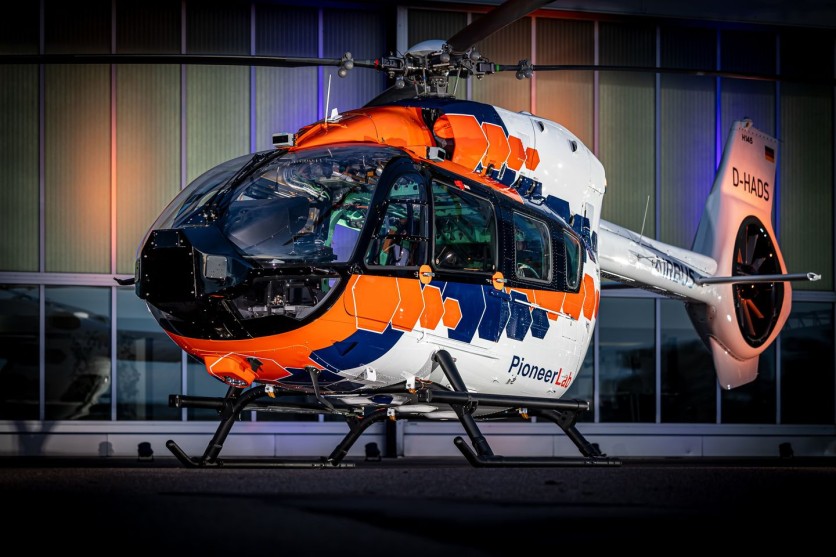Airbus Helicopters has introduced the PioneerLab, a cutting-edge flying laboratory based on the H145 platform aimed at advancing technology for rotorcraft.
This latest addition to the FlightLab series concentrates on the development of eco-friendly materials and technologies, envisioning a more sustainable and efficient future for helicopters.

All About the PioneerLab of Airbus Helicopters
The PioneerLab integrates a hybrid electric propulsion system and enhanced aerodynamics, leading to an impressive 30% reduction in fuel consumption. Furthermore, it serves as a testing ground for structural components crafted from bio-based and recycled materials.
This approach minimizes the consumption of raw materials and energy, contributing to a reduced environmental impact throughout the helicopter's operational lifespan.
Tomasz Krysinski, Head of Research and Innovation Programmes at Airbus Helicopters, expressed enthusiasm for the project, saying: "With PioneerLab, we continue our ambitious strategy to test and mature new technologies on board our helicopter demonstrators. PioneerLab, which is based in Germany at our Donauwörth site, will be our platform to test technologies specifically dedicated to twin-engine helicopters."
One of the main objectives of the PioneerLab is to demonstrate substantial fuel savings, a milestone achieved through a combination of the hybrid electric propulsion system and refined aerodynamics.
In tandem with this, Airbus Helicopters will conduct in-flight assessments of structural components constructed from bio-based and recycled materials. These initiatives represent a step forward in reducing the environmental impact of the entire aircraft life cycle.
Read Also : Voyager Space, Airbus Join Forces to Develop Starlab That Could Replace NASA's International Space Station
Enhancing Recyclability
The company said it aims to adopt production methods that are resource-efficient, minimizing material and energy consumption while enhancing recyclability.
Future research endeavors will encompass the integration of state-of-the-art digital technologies into the flight control system, with a focus on increasing autonomy and safety during critical flight phases like take-off and landing.
Partially funded by the BMWK, the Federal German Ministry for Economic Affairs and Climate Actions, through its national research program LuFo, the PioneerLab project aligns with Airbus Helicopters' commitment to advancing technology through practical experimentation.
FlightLabs serve as test environments, enabling rapid assessments of technologies. It forms a crucial aspect of the company's strategy to implement incremental innovations for existing products and lay the groundwork for future platforms.
The PioneerLab's flight campaign has already commenced at Airbus' major German site in Donauwörth. The initial phase involved testing a rotor strike alerting system on the demonstrator.
Subsequently, the focus will shift towards evaluating an automated take-off and landing system, further advancing the capabilities of this pioneering flying laboratory.
Related Article : Airbus' Zero Emission Development Centre Building Hydrogen Planes on Cryogenic Fuel Research

ⓒ 2026 TECHTIMES.com All rights reserved. Do not reproduce without permission.




